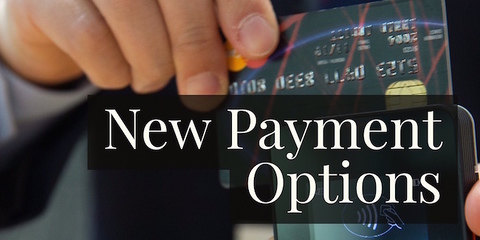As a business owner you are serving consumers or, you may be covering services as a freelancer. Either way, your payments area of your business determines revenue growth and the state of your cash flow. While you may have relied on checks and cash for transactions previously, your online customers and outsourced staff may prefer other types of company payment methods, such as digital payments and mobile payments.
The Advent of a Cashless World
Statistics indicate an ongoing move to cashless payments in the UK and elsewhere, according to the Payments Council. According to this industry body, the use of cash by consumers now accounts for less of half the payments made. Nearly 52% of payments are now electronic transactions, including debit card payments, eChecks, and virtual cash. By 2024, the use of cash by consumers in the UK is expected to fall to 34%. A Mastercard study indicated that the UK was considered one of the most advanced countries globally in terms of its transition to a cashless society.
Let’s say you want to attract these customers in the UK as well as keep your virtual staff. You’ll need to start exploring new company payment methods. According to John Rampton, an entrepreneur in the global payments space, “We are seeing more businesses expand the type of payment methods they offer, including e-checks, ACH, and digital wallet capabilities, as a way to attract more consumers and maintain their freelance talent. The businesses that have added these payment types are reporting a rise in their customer base.”
However, if you avoid migrating to the new preferred ways to make payments, you may be slowly killing your business. Research from Kalixa Pro noted that 71% of those Brits surveyed admitted that they rarely carry cash and often have less than £20 in cash while those, ages 18 to 24, have even less cash on them. The majority of people prefer to use a card for transactions. Nearly 1/4 of those surveyed said they would go to a different shop that could process card payments. This is a significant amount of lost business if a small business owner can’t or won’t expand their payment methods.
New Ways to Transact
Along with the new preferred payment methods that are emerging, payment methods that are designed to offer a way to better address the migration to online and cashless payments. This new transaction platform includes Bitcoins and the numerous other versions of what is being termed cryptocurrency.
In explaining the benefits of this digital currency for a business, Chalmers Brown, CTO of Due, a payments company that offers a range of payment processing tools and online invoicing platform, “There are no fees to receive bitcoins, which means that businesses can avoid a lot of the significant fees that often come with card processing. It is ideal for international payments because there are no currency exchange fees or time spent on this process. Additionally, no PCI compliance is required. Thus, there is a significant protection from fraud that is much higher than any other payment method now used.”
More consumers and businesses are getting comfortable with the idea of digital currency. Now, more than 100,000 merchants around the world accept Bitcoin as payment, including numerous businesses in the UK. This has led to more people shopping online. Previously, they couldn’t because they could not get a credit or debit card. More and more more is understood about how the digital currency can be used and more standards and regulations are framed. As a result, Bitcoin and the other types of digital currency could become a game changer in the payments industry.
Time to Evolve
This evolution in payments is continuing around the world, leaving some businesses behind while others gain the lead among their industries due to their willingness to evolve with the times. What will you do?















